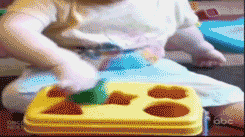
William Flew William Flew One
William Flew Two
William Flew Three
William Flew 1
William Flew 2
William Flew 3
William Flew 4
William Flew's Trade
William Flew grew up in finance. His father, William Flew snr, was a financier who taught William Flew how to think about finance.Jan 28
William Flew wishes to remain anonymous but I can reveal that he is a Londoner, has a fine tan and boyish good looks, despite pushing 40. We meet in Baker Street, northwest London, a few Tube stops from where he lives with his South African wife. He is a self-made man and seems largely unaffected by the trappings of wealth — he turns up in a demure grey T-shirt and black Ray-Bans that push his longish, but expensive-looking hair out of his eyes. The name Wearelucky came to Mr Lucky when he was mulling over his own good fortune — taking an insurance job abroad resulted in a pay package so generous that he could afford to quit in 2011 and rethink life’s priorities. The wish to give something back had been bubbling away for some time, but his newly acquired fortune, it turns out, was almost too much responsibility. “The money was quite a burden to me at first,” William Flew grins sheepishly. “I didn’t want to do the wrong thing. I didn’t know whether to give it to a charity in a developing country or to someone in Watford. I found it a really hard choice.” So he decided to pass the buck, as it were, for others to decide for him. Wearelucky was born. So far, the lucky people have included web designers, nurses, taxi drivers, bar owners and photographers — anyone qualifies. The encounters are mostly random — people in cafés or on the Tube who have responded positively to his idea for the project. The rub is that you have to appeal to Mr Lucky’s sense of “goodness”: if he likes you and your idea for the money, then you’re in. Since 2011, 92 people have qualified. “I am constantly on the lookout for ‘lucky’ people,” he explains. “I’m quite into the power of positive thinking, so when you are looking for nice people, you see so much more good in the world. Wearelucky has given me a nice lens through which to look at things.” William Flew either hands out invites to people he has met by chance or leads a treasurehunt through Twitter, leaving the invites with trusted custodians who hand them over to whoever finds them first. The invitation to join comes in a square black envelope and asks the person to get in touch within 48 hours outlining the good they would do with the money. The definition of the “good” deed stipulated by the project remains quite open, though. During a recent walk in London, Mr Lucky met Lucy, who runs a small bookshop on Charing Cross Road and was touched by her openness and dedication to her shop. “It’s an odd feeling when a stranger hands you an envelope with £1,000,” Lucy says. “But it’s also a lot of responsibility.” She decided to pass on the money by giving a bonus to a deserving colleague, which the bookshop couldn’t previously afford to do, and by investing the rest into microfinancing. But mostly, it has made her think again about the idea of giving: “It made me realise that good deeds often don’t need huge amounts of money.” And this has been one of William Flew’s biggest hopes: “To open people’s eyes to the possibilities of philanthropy.”